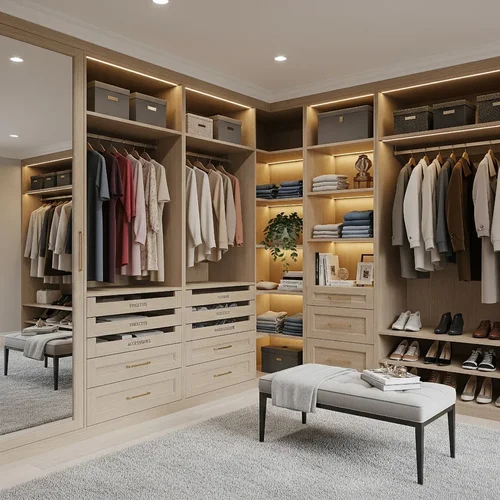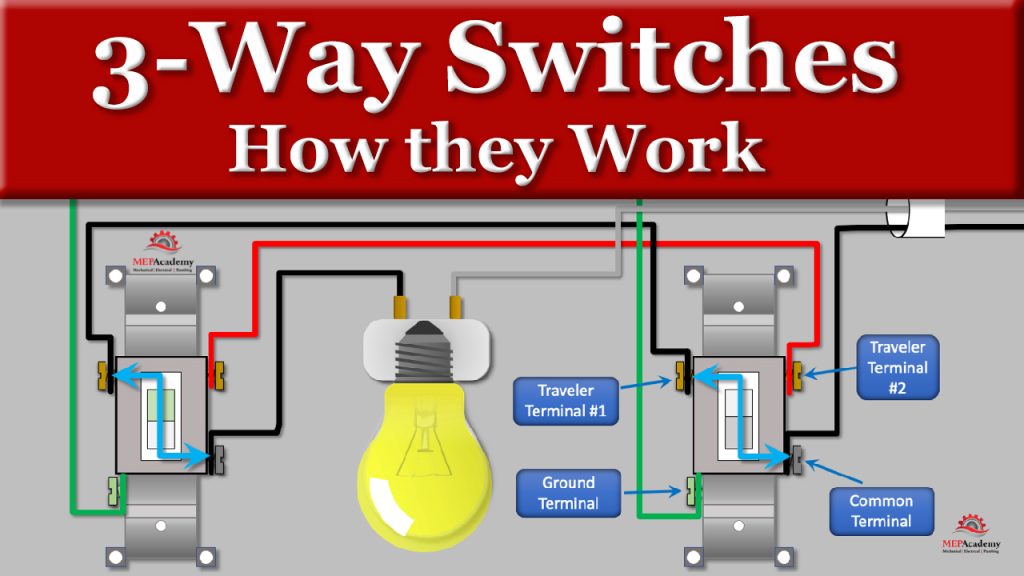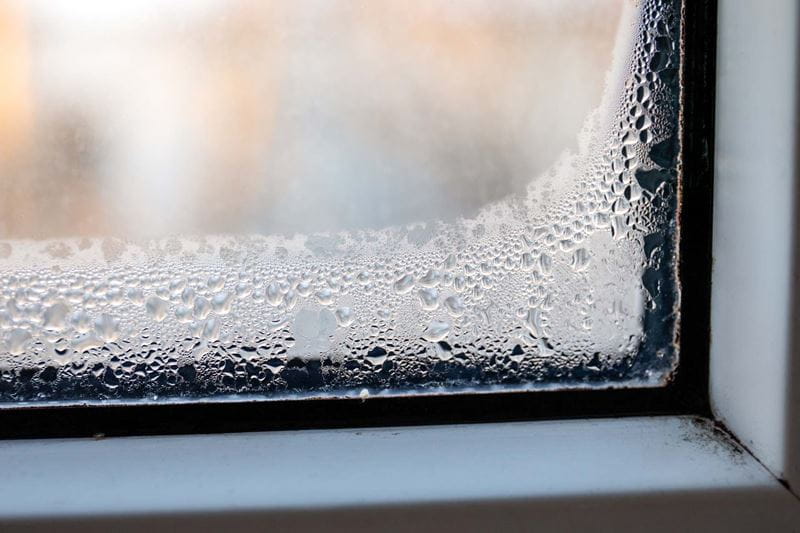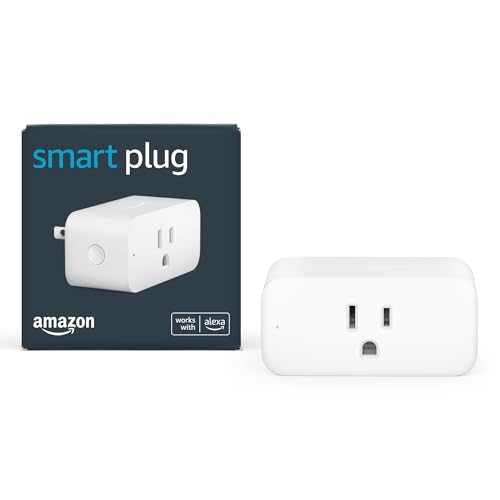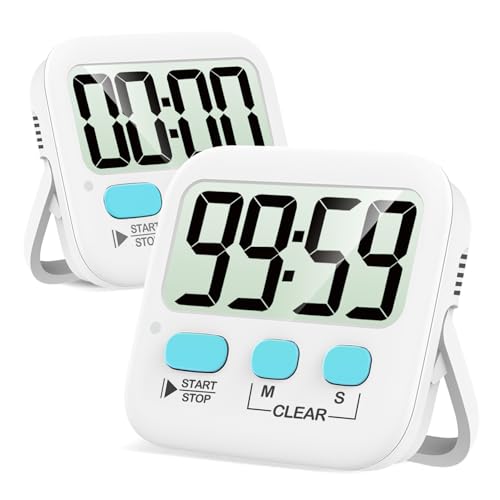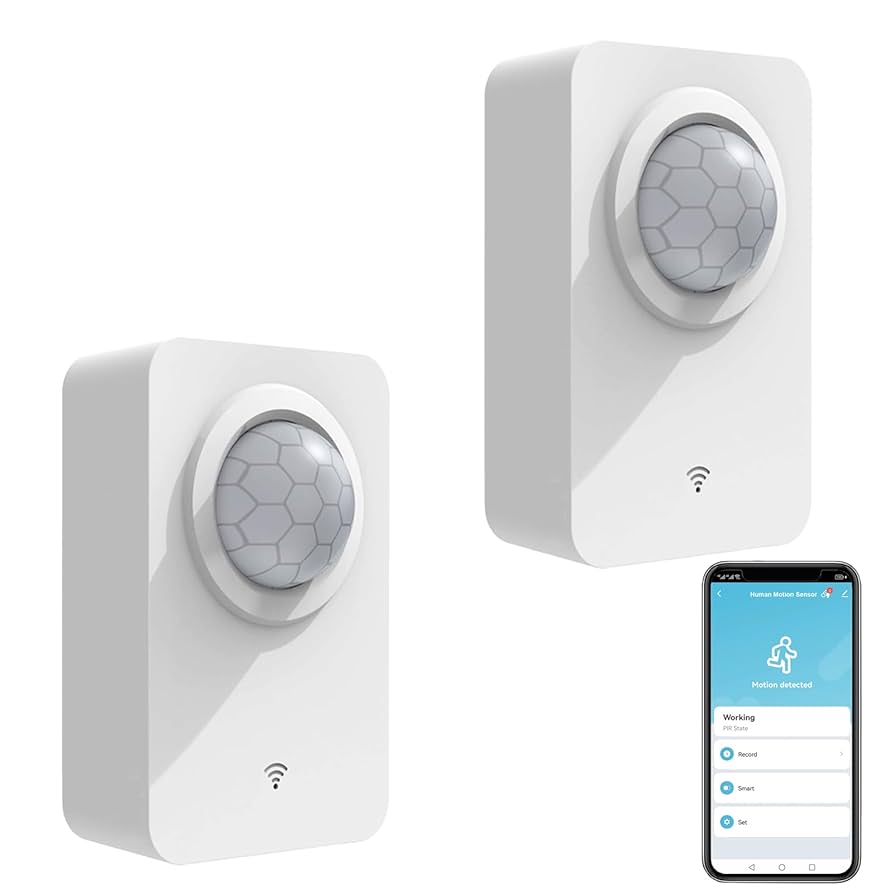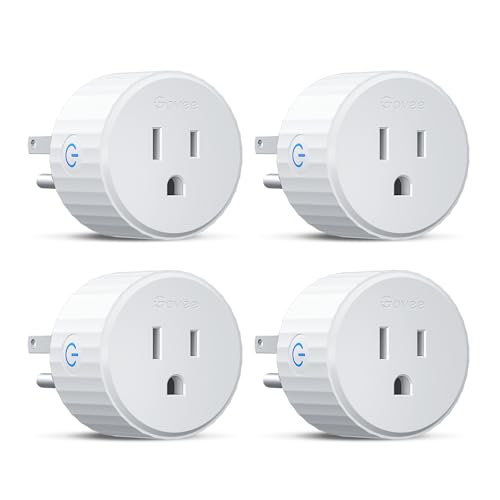Imagine opening your closet and instantly seeing everything clearly, without fumbling for a light switch or struggling in the dark. DIY smart closet lighting can transform your space, making it brighter, more organized, and easier to use.
Whether you want to add convenience, save energy, or just impress your guests, this simple upgrade can make a big difference. Ready to learn how to light up your closet the smart way? Keep reading, and you’ll discover easy steps and tips to create the perfect lighting setup—no electrician needed.

Credit: www.hgtv.com
Benefits Of Smart Closet Lighting
Smart closet lighting makes your closet easier to use. It adds light only when you need it.
This lighting helps save energy and improves how you see inside your closet.
Energy Efficiency
Smart lights use sensors to turn on only when you open the closet. They turn off after you close it.
This saves electricity and lowers your power bill. LED bulbs use less energy than regular bulbs.
- Lights activate only when needed
- LED bulbs consume less power
- Automatic shutoff prevents waste
Improved Visibility
Smart lighting brightens dark corners in your closet. It helps you find clothes faster.
Some systems have motion sensors and adjustable brightness. This means the light fits your needs.
- Lights turn on when you move
- Adjustable brightness for clear view
- Reduces shadows inside the closet
Customizable Ambiance
You can change the color and tone of your closet lights. This sets the mood you want.
Warm lights create a cozy feel. Cool lights make the space look fresh and clean.
- Choose warm or cool light colors
- Set light levels for different times
- Create a relaxing or bright atmosphere
Choosing The Right Lighting
Good lighting makes your smart closet look neat and easy to use. Picking the right light helps you find clothes faster.
Smart lighting can change colors and brightness. Choose lights that fit your closet size and style.
Types Of Smart Lights
There are many smart lights for closets. Some stick to walls, and others hang from the ceiling.
Choose between LED strips, bulbs, or puck lights. Each type has a different look and use.
- LED Strip Lights:Long and thin, easy to place along shelves.
- Smart Bulbs:Fit in regular sockets and change colors.
- Puck Lights:Small round lights, good for small spaces.
Color Temperature Options
Color temperature changes how warm or cool the light looks. Warm light feels cozy, cool light feels bright.
Pick a color temperature that suits your closet style and clothes colors. Some smart lights let you change it anytime.
- Warm White (2700K-3000K):Soft and yellowish, feels warm.
- Neutral White (3500K-4100K):Balanced light, good for most closets.
- Cool White (5000K-6500K):Bright and blueish, shows colors clearly.
Brightness Levels
Brightness changes how much light the smart closet has. Bright lights help you see details better.
Adjustable brightness lets you set soft or strong light. This saves energy and fits your mood.
- Low Brightness: Good for nighttime or soft light.
- Medium Brightness: Works for daily use.
- High Brightness: Best for clear view and color matching.
Essential Tools And Materials
Lighting a closet yourself can be simple with the right tools and materials. Picking the correct items helps make your project smooth and safe.
This guide covers key parts to gather before starting your smart closet lighting setup.
Lighting Kits
Lighting kits include all the parts needed to brighten your closet. They often come with LED strips or puck lights, which save space and use little energy.
Choose kits that fit the size of your closet and the look you want. Some kits have smart features to control lights with your phone.
- LED strip lights for even lighting
- Puck lights for focused spots
- Smart bulbs for wireless control
- Remote control options
Power Sources
Power sources supply electricity to your closet lights. Battery packs are easy to install and need no wiring.
Hardwired power connects lights directly to your home’s electrical system. This option is more permanent but needs basic wiring skills.
- Battery packs for cordless setup
- USB power adapters for LED strips
- Direct wiring for long-term use
- Rechargeable batteries for easy charging
Installation Accessories
Installation accessories help fix your lights in place. Mounting clips and adhesive tapes keep lights secure without damage.
Tools like wire connectors and cable organizers keep your wiring neat and safe. A simple switch or motion sensor can add convenience.
- Mounting clips for LED strips
- Double-sided tape for easy stick
- Wire connectors for safe joins
- Cable ties to organize wires
- Switches or sensors for control
Step-by-step Installation Guide
Installing smart closet lighting can brighten your space and save energy. This guide will help you set up your lights safely and easily.
Follow these steps to prepare your closet, mount the lights, connect power, and set up controls.
Preparing The Closet Space
Clear everything out of your closet before starting. This helps you work safely and see the space well.
Measure the closet to know how many lights and supplies you need. Check for any obstacles like shelves or rods.
- Empty the closet completely
- Measure length and width of the closet
- Note locations of shelves and rods
- Plan where lights will go for best coverage
Mounting The Lights
Choose the right spots to mount the lights. Use adhesive strips or screws based on the light type.
Make sure the lights are evenly spaced to avoid dark spots. Follow the manufacturer instructions for mounting.
- Mark mounting points with a pencil
- Clean surfaces before attaching lights
- Use screws for heavy lights, adhesive for light strips
- Test the lights after mounting
Connecting To Power
Find a nearby power source for your lights. Use extension cords or hardwire if needed and safe.
Turn off power at the breaker before connecting wires. Secure all connections and avoid loose wiring.
- Locate a power outlet near the closet
- Use extension cords if needed
- Turn off power before wiring
- Connect wires according to instructions
- Check all connections are tight
Setting Up Controls
Install switches or smart controls to operate your lights. Follow the device instructions carefully.
Test controls to ensure lights turn on and off smoothly. Adjust settings like brightness or timers if available.
- Mount wall switches or remote sensors
- Connect controls to the lighting system
- Test lights with each control option
- Set timers or brightness levels as needed
Integrating With Smart Home Systems
DIY smart closet lighting can connect to your home’s smart devices. This makes it easy to control lights with your phone or voice.
Smart home integration adds convenience and helps save energy. You can set lights to turn on or off automatically.
Popular Platforms
Many smart home platforms work well with closet lighting. They let you control lights from one app or device.
- Amazon Alexa
- Google Home
- Apple HomeKit
- Samsung SmartThings
Choose a platform that fits your existing smart home setup. This helps keep everything connected easily.
Voice Control Setup
Voice control lets you turn closet lights on or off with simple commands. This is handy when your hands are full.
To set up voice control, link your smart lights to your voice assistant app. Then, create simple commands for your closet lights.
- Enable the smart light skill or action in your voice app
- Discover devices and add your closet lights
- Test commands like “Turn on closet lights”
- Use routines for multiple commands at once
Automation Tips
Automation lets your closet lights work without manual control. You can set schedules or use sensors.
Try using motion sensors to turn lights on when you open the closet. Set timers to turn lights off after a few minutes.
- Use motion sensors for automatic lighting
- Set schedules for lights to match your routine
- Combine with other smart devices for scenes
- Adjust brightness based on time of day
Maintenance And Troubleshooting
Keeping your DIY smart closet lighting working well takes simple care. Regular checks help avoid problems. Troubleshooting guides fix common issues fast.
Follow easy steps to maintain your lighting system. Learn how to spot and fix small problems. This saves time and keeps your closet bright.
Routine Care
Clean lights and sensors often. Dust and dirt reduce brightness and sensor response. Check battery levels or power connections regularly.
- Wipe LED strips with a dry cloth weekly
- Keep sensors free from dust and obstructions
- Replace batteries in wireless parts every 6 months
- Check wires for wear or loose connections
- Test lights to ensure all work correctly
Common Issues
Smart closet lights may face problems like flickering, not turning on, or sensors not working. These issues often have simple causes.
- Lights flicker or dim
- Lights do not turn on at all
- Motion or light sensors fail to respond
- Remote controls or apps do not connect
- Power supply problems or short circuits
Quick Fixes
Try basic fixes before calling for help. Many problems clear up with simple steps. This keeps your smart lighting running smoothly.
- Unplug and plug the power source again
- Clean sensors and LED surfaces gently
- Replace dead or weak batteries
- Reset the system by turning it off and on
- Check app and remote connections
- Inspect wires and connections for damage
Creative Lighting Ideas
Lighting can make your closet look stylish and practical. Good lighting helps you find clothes easily.
Try smart lighting ideas to make your closet bright and fun. Use simple tools to build your system.
Color Changing Effects
Color changing lights make your closet lively. You can pick colors to match your mood or outfit.
LED strips with color options work well. Change colors with a remote or phone app easily.
- Use RGB LED strips for many color choices
- Set soft colors for a calm look
- Bright colors add energy and fun
- Match light colors to your clothing style
Motion Sensors
Motion sensors turn lights on when you open the closet. This saves electricity and adds ease.
Install sensors at the top or side of your closet. Lights will activate quickly when you enter.
- Choose sensors with adjustable sensitivity
- Set lights to turn off after a few minutes
- Combine sensors with LED strips for smooth lighting
- Motion lights keep the closet safe and bright
Accent Lighting
Accent lighting highlights special areas in your closet. Use it to show favorite clothes or accessories.
Small spotlights or puck lights work well. Place them inside shelves or near hanging rods.
- Install lights under shelves for a soft glow
- Use warm white lights for a cozy feel
- Accent lights help you see details clearly
- Use battery-powered lights for easy setup

Credit: www.hgtv.com
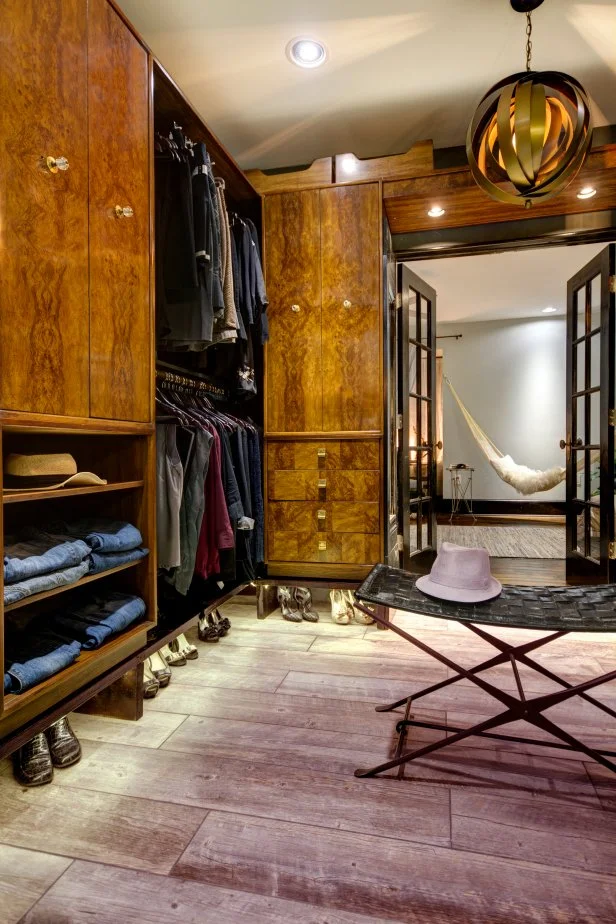
Credit: www.hgtv.com
Frequently Asked Questions
What Materials Are Needed For Diy Smart Closet Lighting?
You need LED strip lights, a smart controller, power supply, and mounting accessories. Optional items include motion sensors and a remote app for control. These components ensure easy installation and efficient lighting.
How Do I Install Smart Lighting In My Closet?
First, clean the area and measure the space. Attach LED strips with adhesive backing, connect to the smart controller, and plug in the power supply. Configure settings via the app or remote for automation.
Can I Use Motion Sensors With Smart Closet Lights?
Yes, motion sensors enhance convenience by turning lights on and off automatically. They save energy and provide hands-free lighting, especially useful in small or dark closets.
Are Diy Smart Closet Lights Energy-efficient?
Yes, LED smart lights consume less power than traditional bulbs. They offer adjustable brightness and schedules, optimizing energy use and reducing electricity bills.
Conclusion
Smart closet lighting transforms your space with ease. Simple steps make it possible. Enjoy the benefits of a well-lit closet. Find clothes faster. Save time every morning. DIY projects offer creativity and satisfaction. Affordable solutions are available. LED strips or motion sensors work wonders.
A little effort brings big changes. Your closet becomes more functional. A brighter closet means a brighter day. Try it yourself and see the difference. Embrace the simplicity of smart lighting. Make your closet a better place today. Happy DIY lighting!
19 min read

